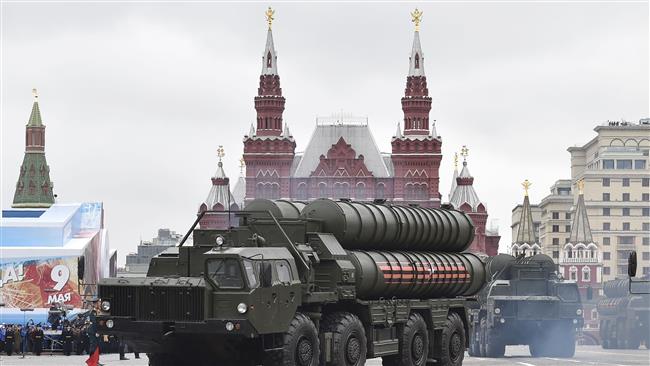Turkey buys Russia's S-400 systems, mulls own missile system: Minister
Turkish Defense Minister Nurettin Canikli says the country has completed the process of purchasing Russia's S-400 surface-to-air missile systems and is in talks with a European consortium to help it develop its own missile defense system.
"It is finished, the S-400 missiles have been bought. The rest is just details now," the Turkish defense minister said in televised comments in the Black Sea town of Giresun on Sunday.
In September, Ankara and Moscow reached an agreement on the delivery of the S-400 systems to Turkey. At the time, Turkish President Recep Tayyip Erdogan said a deposit had already been made for two batteries of the advanced missile systems.
Under the deal, Russia would send two systems to Turkey within the next year and then help the country domestically produce two more batteries. The deal is said to be worth around $2.5 billion.
The S-400, whose full name is the Triumf Mobile Multiple Anti-Aircraft Missile System (AAMS), is an advanced Russian missile system designed to detect, track, and destroy planes, drones, or missiles as far as 402 kilometers away. It has previously been sold only to China and India.
Elsewhere in his remarks, Canikli, however, noted that Turkey was not content with the S-400 deal alone.
"We are also making preliminary agreements with the EUROSAM consortium to have this technology to develop, produce and use our own sources for air defense systems," the minister said, referring to a joint Franco-Italian defense project.
Ankara is discussing another deal with the European consortium to help it develop its own missile defense system.
Sources in the Turkish Defense Ministry said last week that Canikli had signed a letter of intent with France and Italy in the Belgian city of Brussels to strengthen cooperation in defense projects, including missiles.
Purchase of S-400 snubs NATO
The decision by Turkey to buy the S-400 systems from Moscow has been seen by some of its Western allies as a snub.
Turkey, being a NATO member state with the second-largest army in the military alliance, drew an outpouring of criticism from the US and other members of the bloc, which criticized Ankara for drifting toward Moscow.
The deal has also raised concern because the weapons cannot be integrated into the NATO defense.
A senior NATO commander said last week that the alliance would continue to press Ankara to buy weapons that could work together with NATO systems.
Yemeni army strikes Israeli military sites with drones
‘Clock ticking’: UNRWA slams unjustifiable killing of children in Gaza
BP to be sued in Britain for supplying oil to Israel
VIDEO | Press TV's news headlines
Israeli strikes on north Gaza hospital ‘extremely dangerous, terrifying’: Director
VIDEO | Yemen targets Tel Aviv with Palestine 2 missiles
Pezeshkian: Iran resolved to complete North-South Transport Corridor
VIDEO | Iran-Syria: For Resistance










 This makes it easy to access the Press TV website
This makes it easy to access the Press TV website